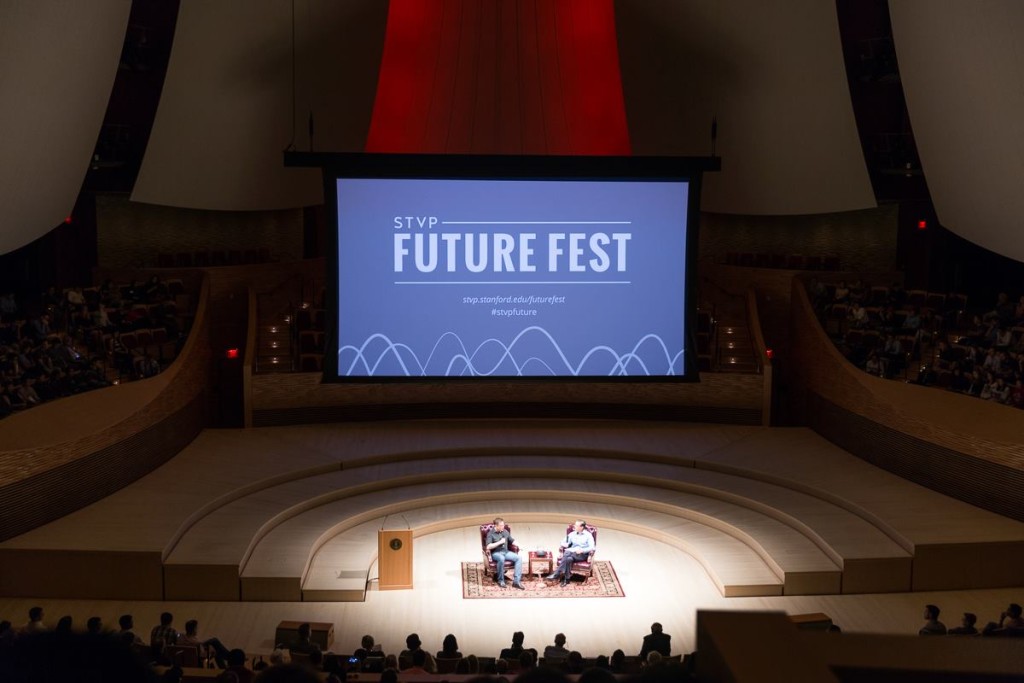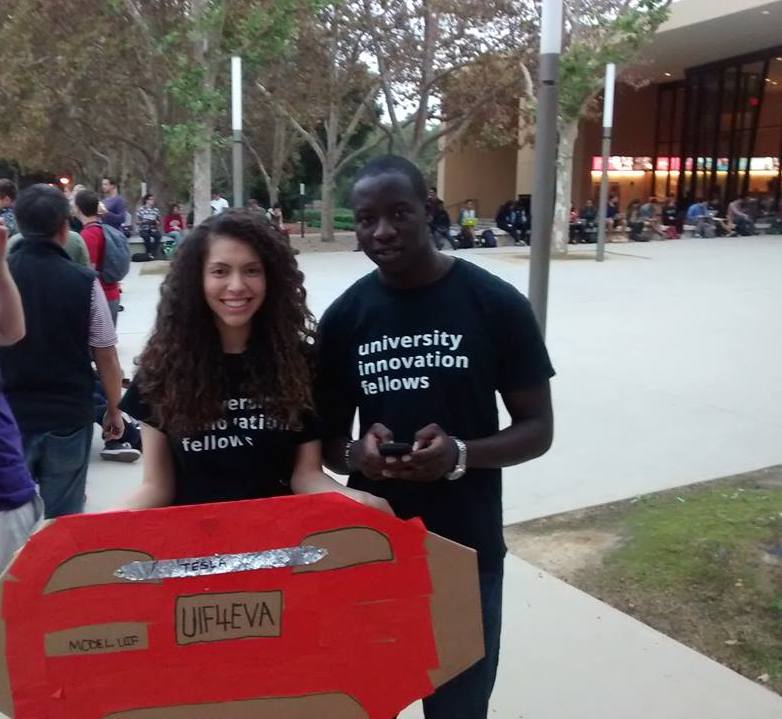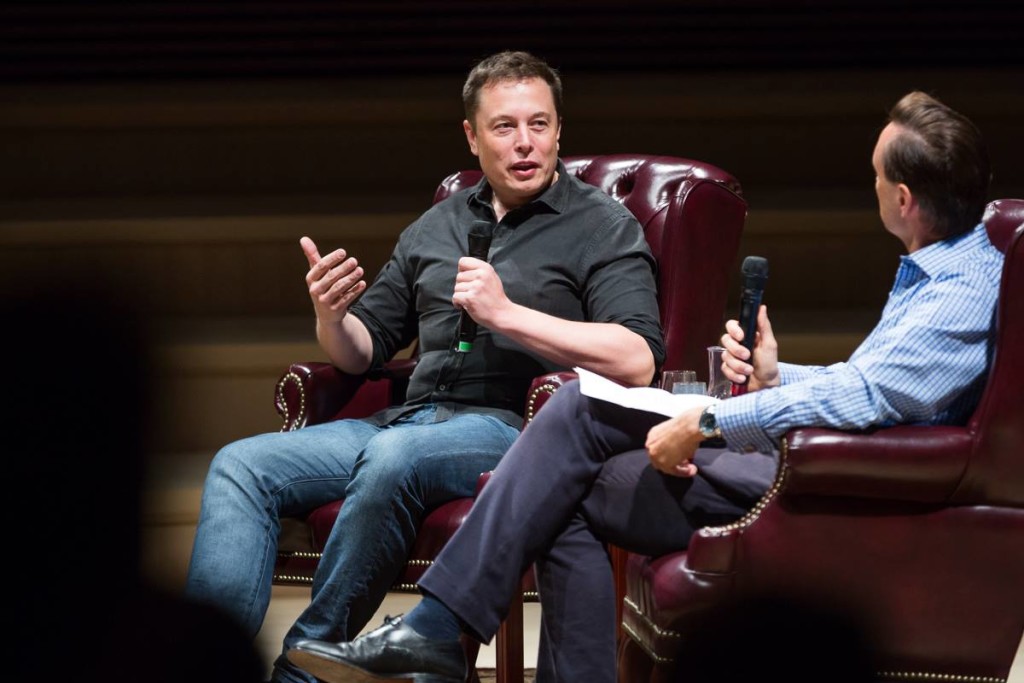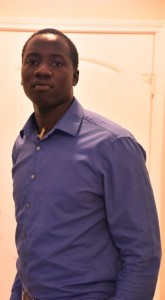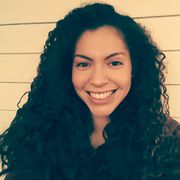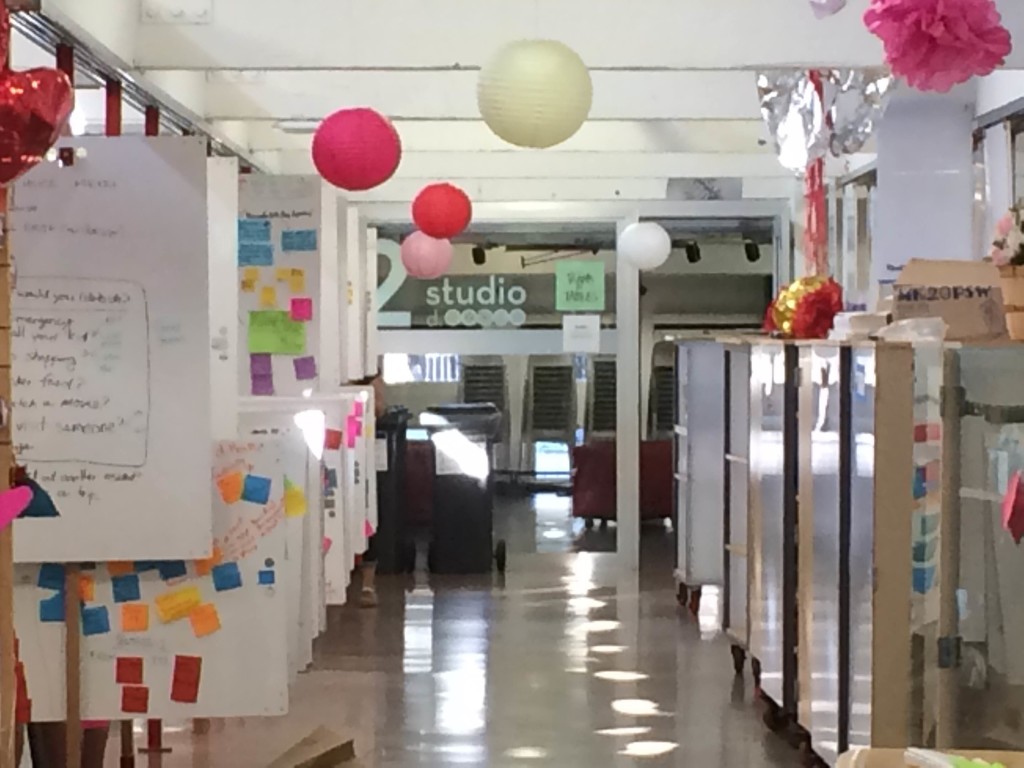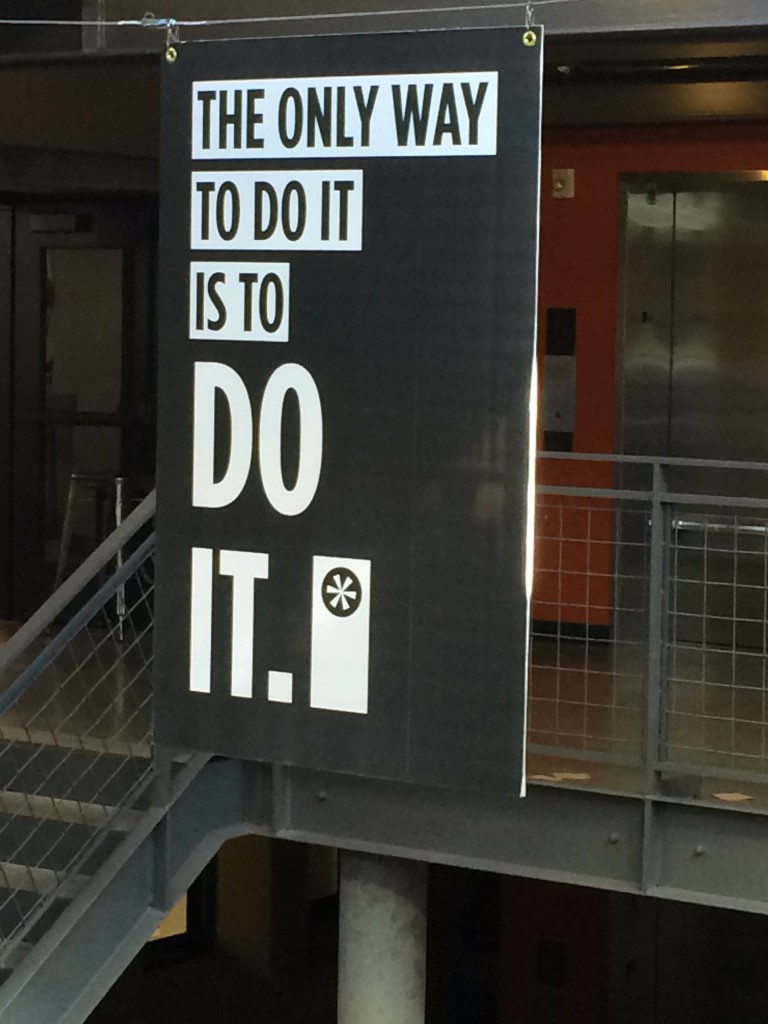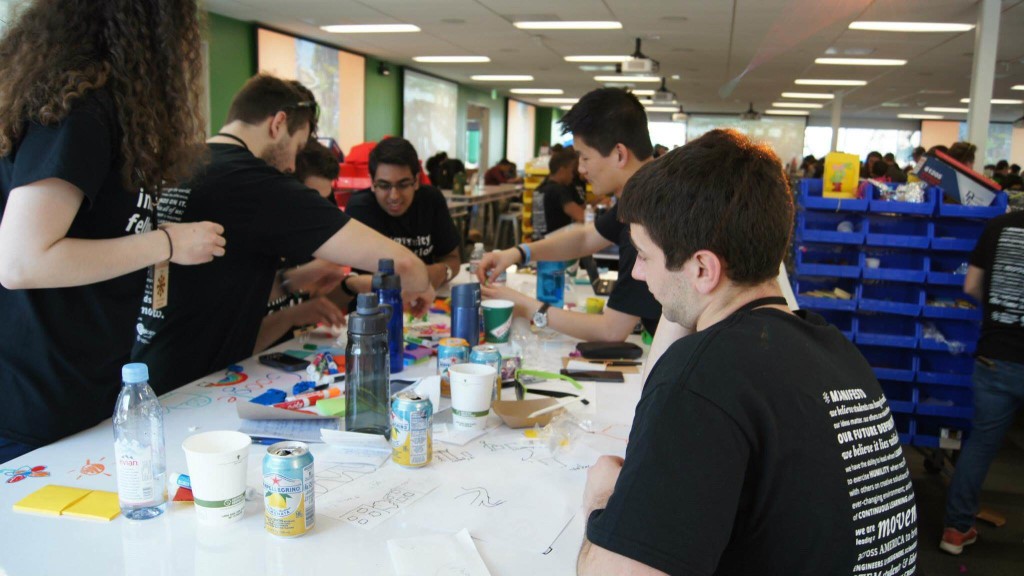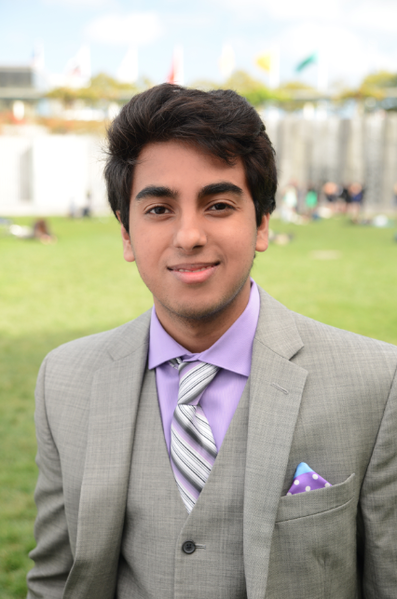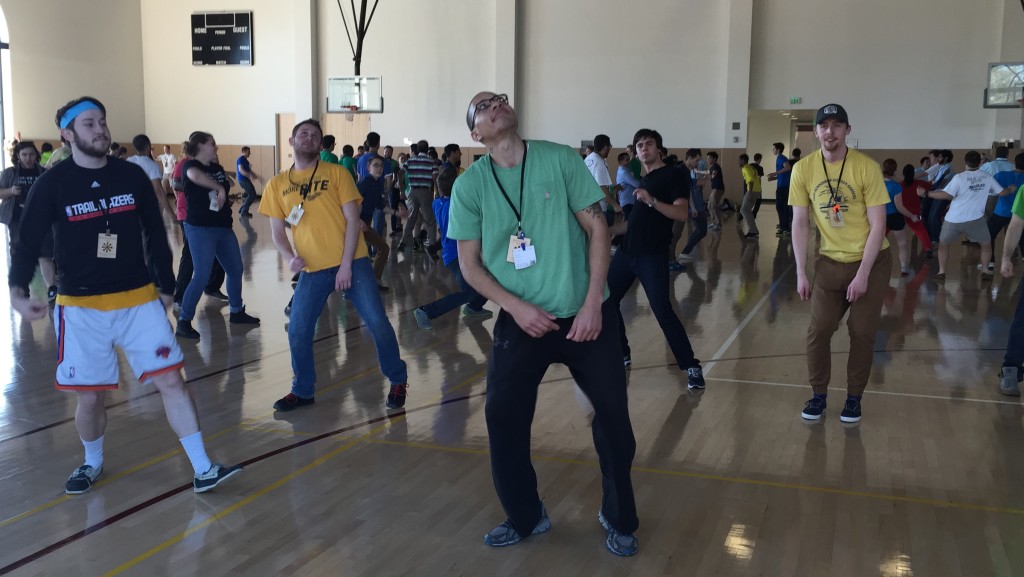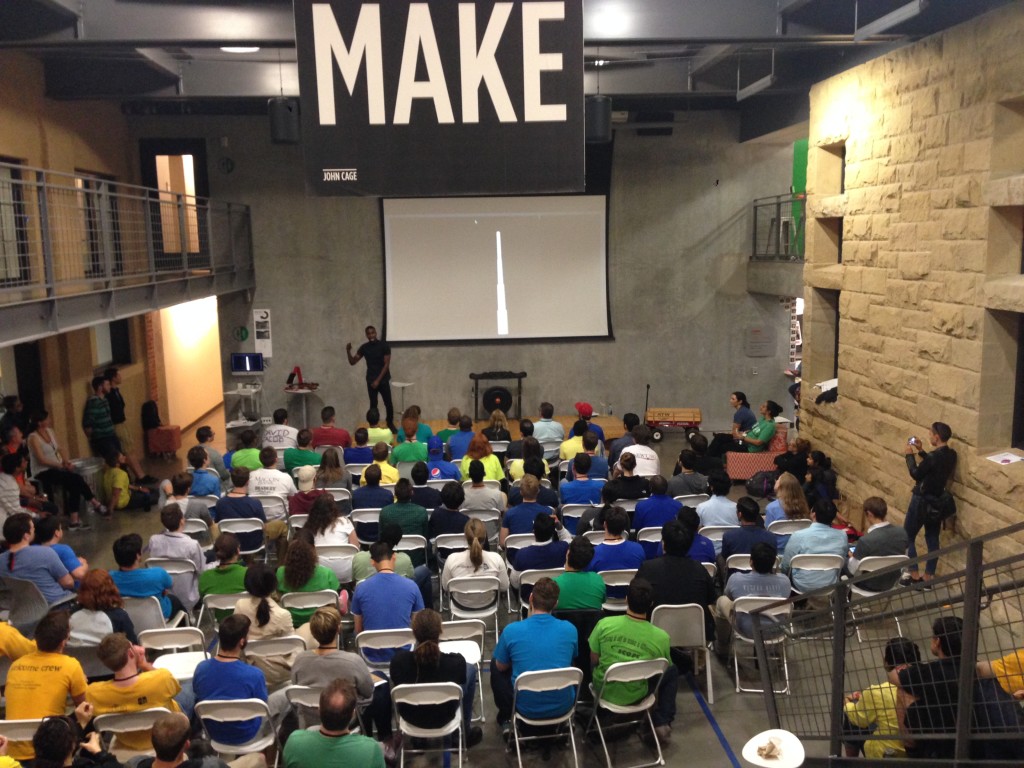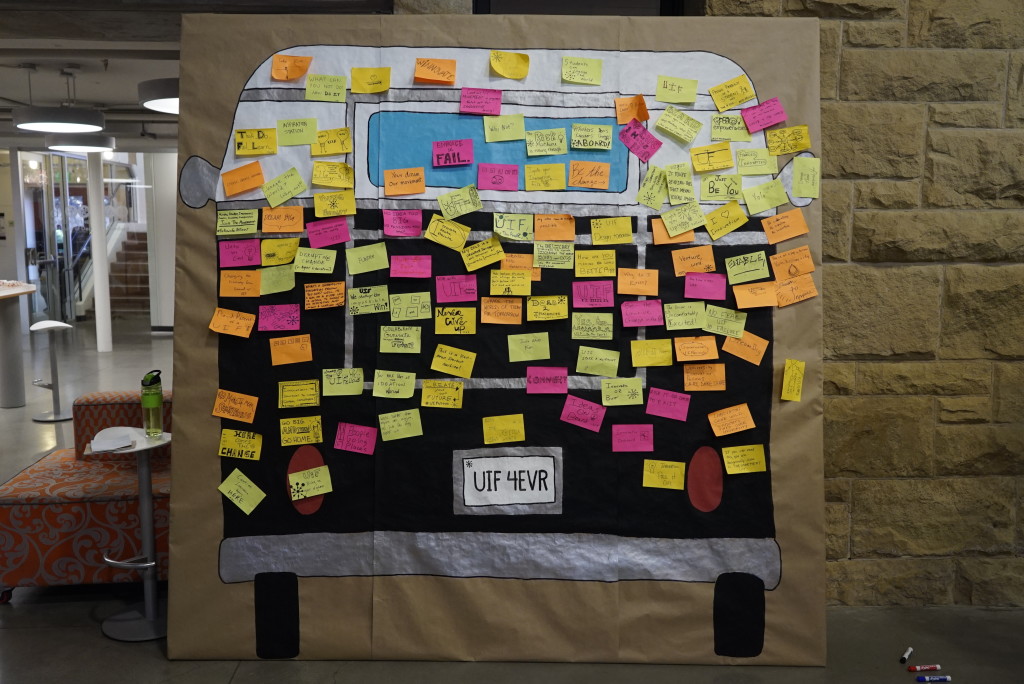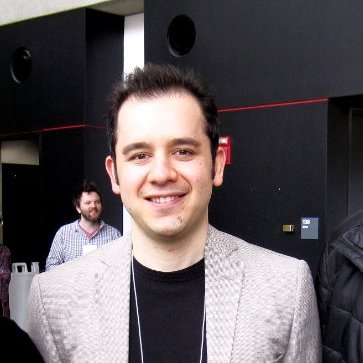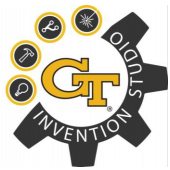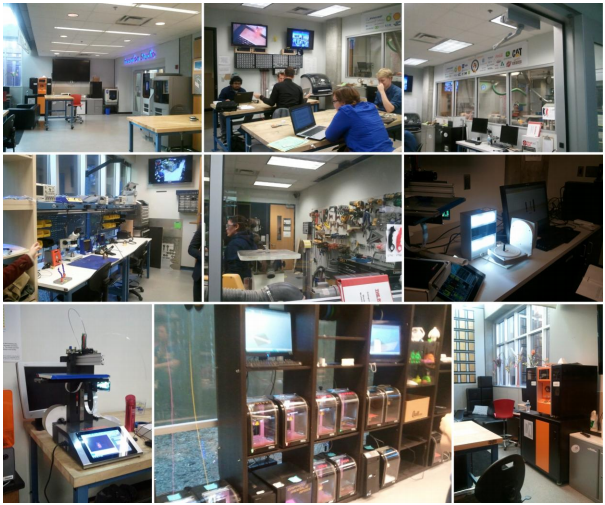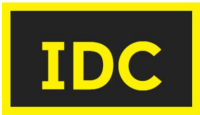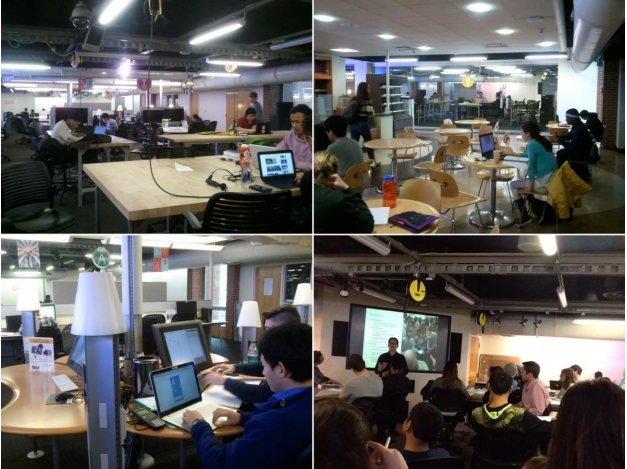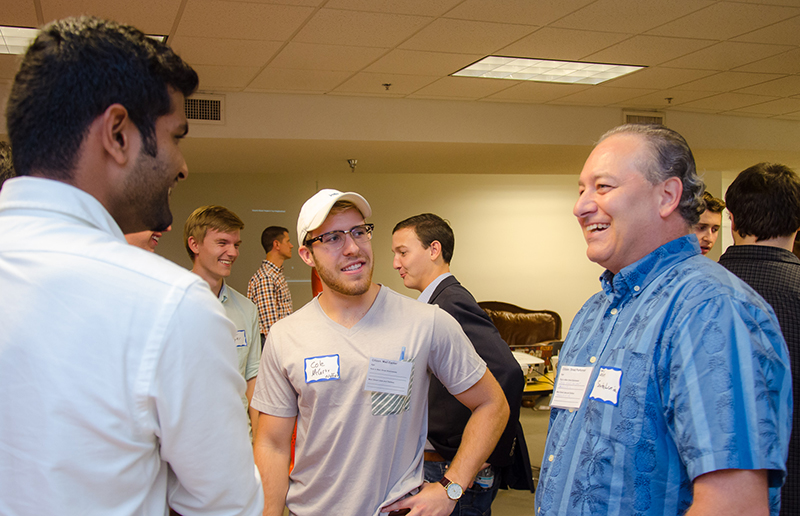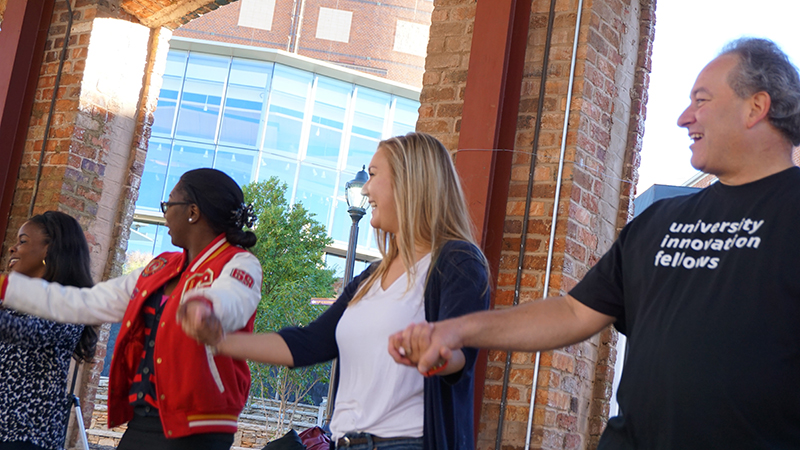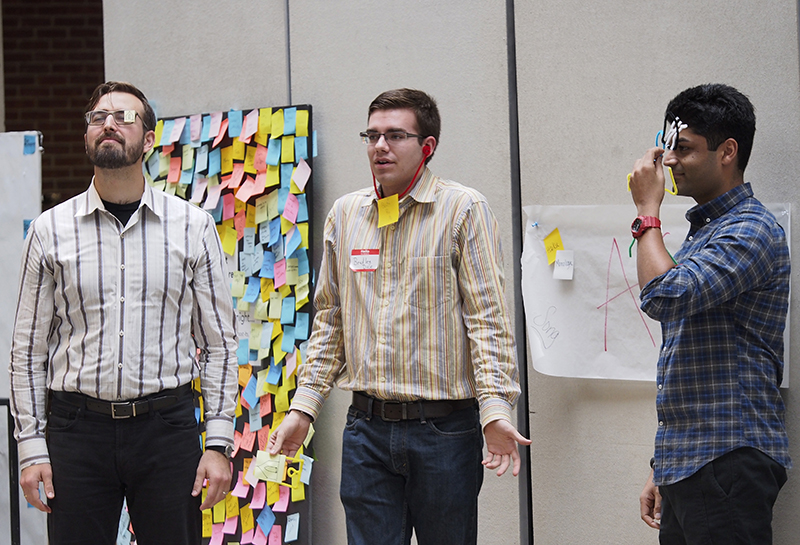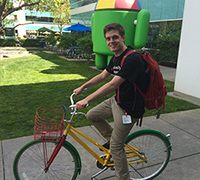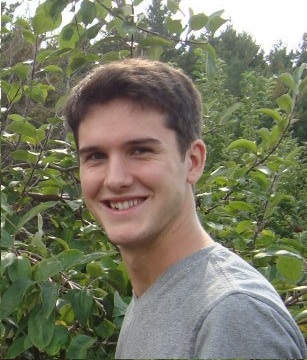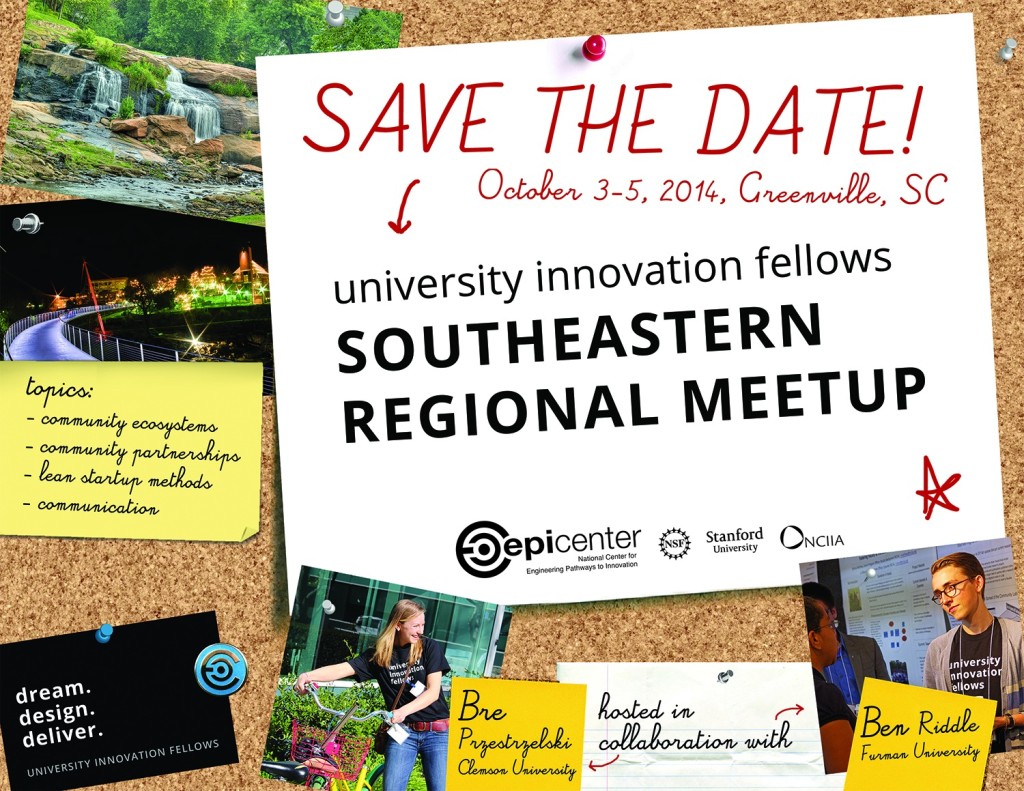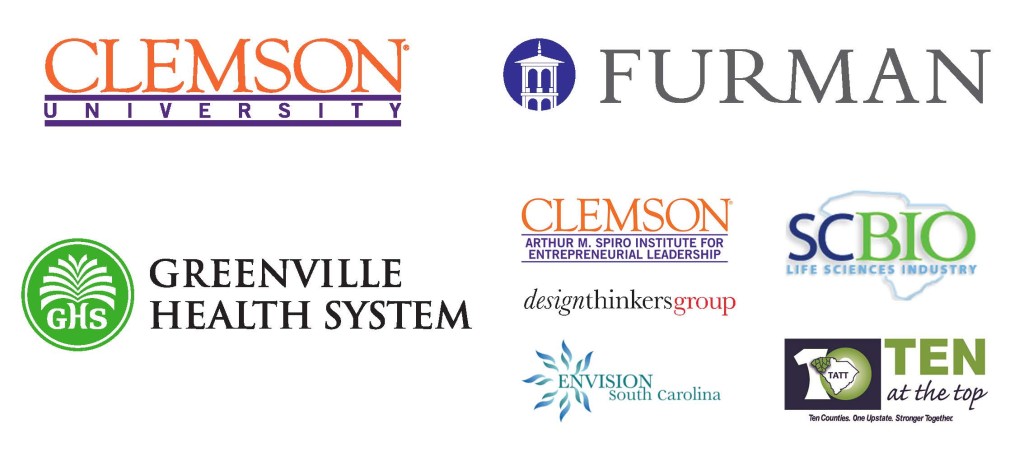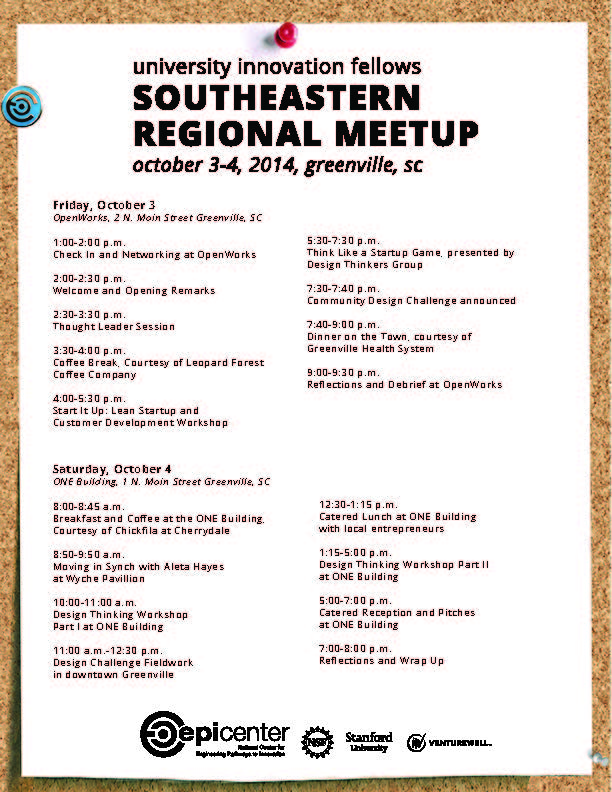Dear Fellows,
We can hardly believe that school is back in session – and we’re almost half way through training! We hope all of you enjoyed your summer endeavors and are settling back into campus life and managing your course loads this fall. As we catch up with you individually, we’d like to recap what we have been up to this summer:
National Academy of Engineering’s Grand Challenges for Engineering
April 30 – June 1, 2014
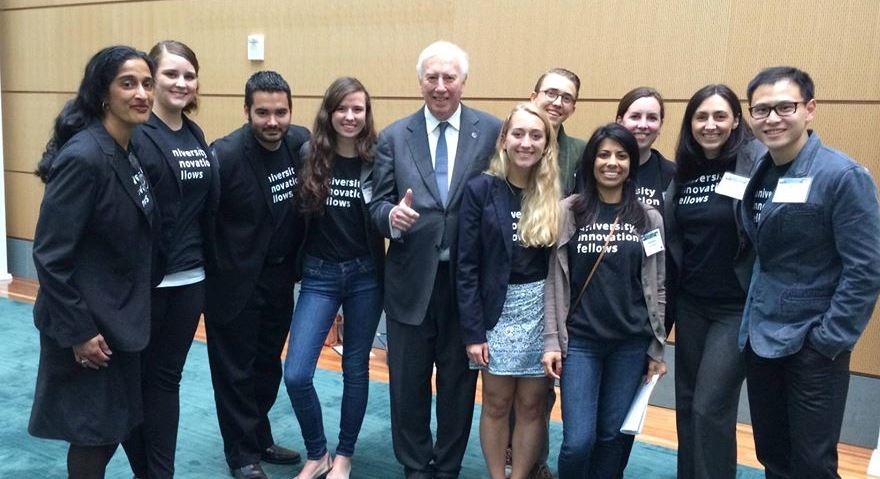
UIFs & Dan Mote, National Academy of Engineering
Our first event of the summer was hosted at the National Academy of Engineering in Washington D.C. During these two days, Fellows discussed the 14 Grand Challenges identified by the Grand Challenge Scholar’s Program (GCSP) alongside deans from institutions across the country. Karuna Relwani (UPitt) presented on the student panel with students from Engineers Without Borders (EWB), Engineering Projects In Community Service (EPICS) and the GCSP. Each student discussed their experience with these programs at their institution and also their key learnings from being exposed to experiential engineering. Megna Saha (Georgia Tech), Mary Wilcox (ASU Tempe), Yifan Ge (Bucknell), Valerie Sherry (UMD College Park), Ben Riddle (Furman), Lauren Distler (James Madison), Natalia von Windheim (NC State) and Corey Brugh (Colorado School of Mines) joined as well to light the fire for these deans to commit to creating change on their campus. The outcome of these two days was 66 deans signatures that solidified their commitment to bringing visibility to the Grand Challenges on their campus. For more information, visit dreamdesigndeliver.org to see a video of the commitment that Fellows made and additional articles written by both Megna and Mary after this event.
Deshpande Symposium for Innovation & Entrepreneurship in Higher Education
June 10 -12, 2014
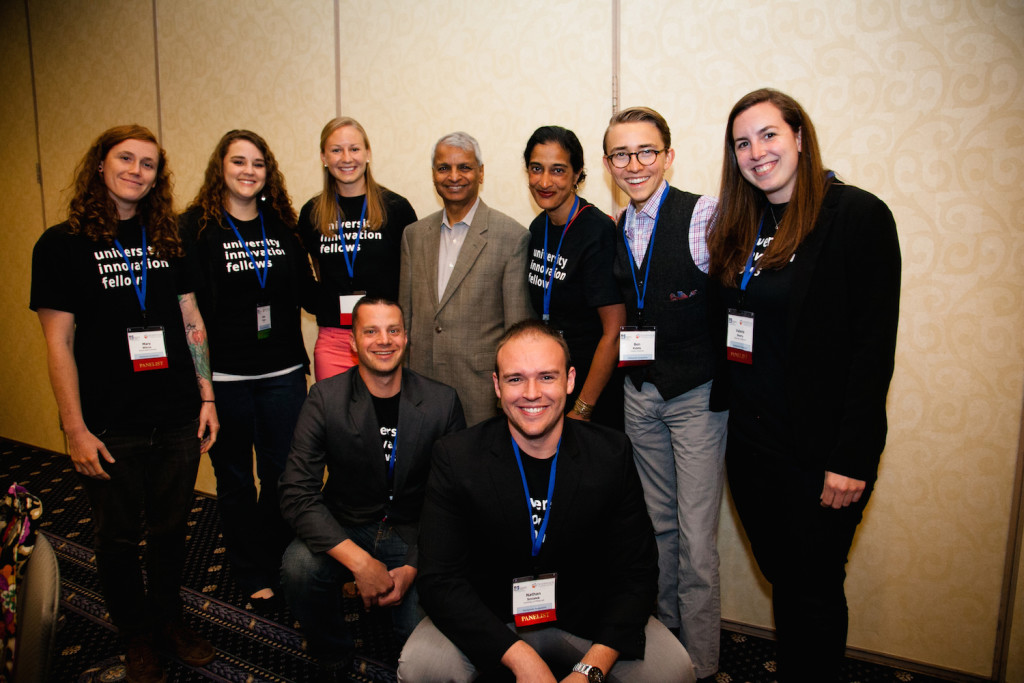
UIFs & Desh Deshpande, Deshpande Symposium
Back in June, Humera and I hoped in a car and met Nate Smialek (UPitt), Mary Wilcox (ASU Tempe), Rob Soloman (UWMilwaukee), Ben Riddle (Furman), Bre Przestrzelski (Clemson) and Valerie Sherry (UMD College Park) in Lowell, Massachusetts for the Deshpande Symposium. We also conveniently saw Kevin Desjardins (UMass Lowell) and his faculty sponsor Tom O’Donnell. The Deshpande Symposium is designed around innovation and entrepreneurship ecosystems, curriculum, commercialization and trending topics. Fellows facilitated a session titled: Students: Secret Agents of Change. Fellows discussed their path to serving as campus change agents and offered tips on how to foster student engagement. We had two faculty sponsors join us: Ross McClain of Furman University and Ilya Avdeev of the University of Wisconsin Milwaukee. To add to the discussion, the faculty spoke to their approaches in cultivating a faculty sponsor-Fellow relationship and how they were supporting their Fellows strategies for change on campus. In addition, we got to visit UMass Lowell’s M2D2, a Medical Device Development Center; the New England Robotics Validation and Experimentation (NERVE) Center; and Emerging Technologies and Innovation Center (ETIC).
EurekaFest 2014
June 20 – 21, 2014
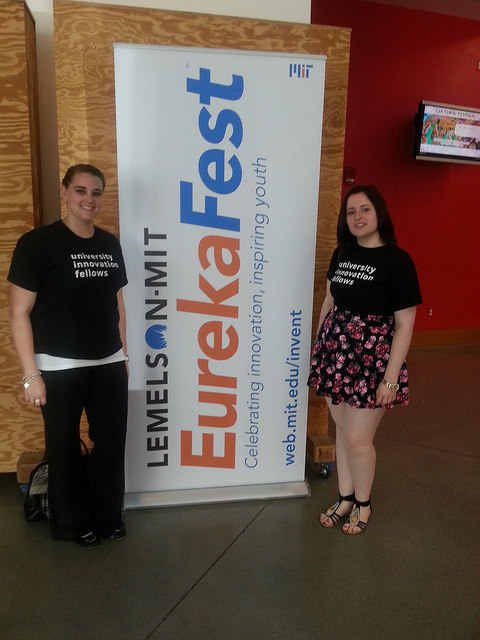
Katie Dzugan, UIF Program Associate (left) & Fellow Hristina Milojevic, Union College at EurekaFest 2014.
EurekaFest is an MIT and Lemelson Foundation sponsored event hosted at MIT in June. InvenTeams are high school student teams invited to showcase their work from the year throughout the day in various formats — presentations and a demonstration. Student Inventions included a robotic snowblower to a pedal desk that created energy to light up a classroom to a reinvented irrigation and water system. In the evening, were the collegiate prizes which showcased the winners of two categories, “Cure it!” and “Use it!” The Lemelson-MIT student prize winners presented their technology-based inventions that were designed to improve healthcare and consumer devices and tools. The winners ranged from an easily accessible classroom 3D printer to a device that helped people monitor glucose levels. We were joined by Hristina Milojevic (Union), Natalia von Windheim (NC State) and Malik Oliver (Fayetteville) and also received a tour of the amazing MIT Media Lab. The MIT Media Lab is THE. ULTIMATE. MAKER SPACE. Any undergraduate student that wants to support the work of the many research teams within the media lab can do so with ease. Imagine this at every campus.
Epicenter Research Summit
August 4 – 5, 2014
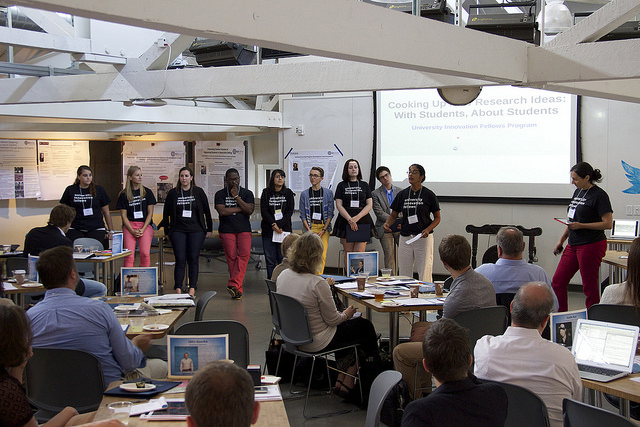
Cooking Up New Research Ideas: With Students, About Students; Epicenter Research Summit 2014
Fast forwarding to August, several students joined us at the Epicenter Research Summit held at Stanford’s d.school. Fellows in attendance were Hristina Milojevic (Union), Bre Przestrzelski (Clemson), Gurlovleen Rathore (Texas A&M), Ben Riddle (Furman), Elliot Roth (Virginia Commonwealth), Valerie Sherry (UMD College Park) and Gregory Wilson (University of Georgia). Along with program leaders, Fellows co-facilitated a session titled, Cooking Up New Research Ideas: With Students, About Students. We were extremely impressed with how each Fellow stepped up and truly helped plan and lead this session for an audience of roughly 70 researchers.
Researchers saw first hand that students were much more than research subjects and recipients of education. They could be active partners and co-designers of their educational experience. After a high-level program summary, researchers joined four
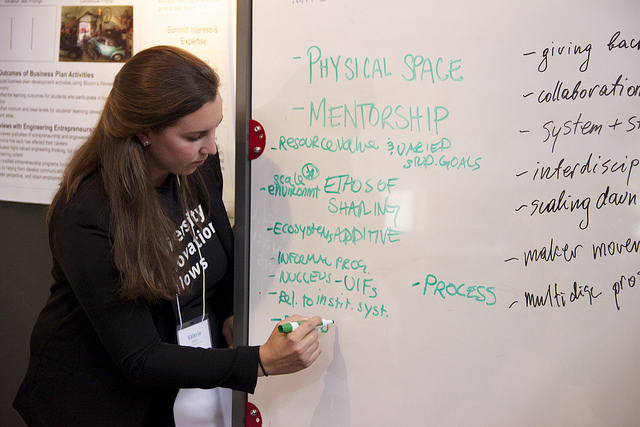
Valerie Sherry (UMD) during UIIF breakout groups; Epicenter Research Summit 2014
breakout groups, each led by a pair of University Innovation Fellows. They explored two research threads of interest to students:
- The what, who and why of successful I&E spaces for students: maker spaces, incubators, accelerators; and
- Personal and contextual factors that support the success of UIFs as change agents.
As a result of their participation, Fellows have reportedly joined together to undertake research projects with one another and with Researchers. For more information on the Summit, click here.
Training, Fall 2014
August 25 – October 4, 2014
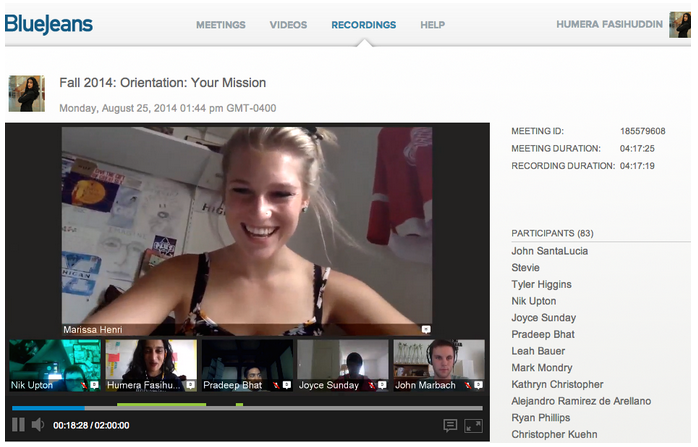
Fall 2014 Training Orientation; August 25
We have launched our Fall training! Much of our summer was consumed by application intake, interviews and planning training for the fall cohort. During the afternoon of Monday, August 25, over the course of 3 hours, we held a successful orientation session via Blue Jeans with over 80 participants, including new candidates, faculty sponsors and Epicenter staff! In those 3 hours, we had an overview of the University Innovation Fellows mission, a faculty-only orientation discussing cultivating a strong candidate-faculty sponsor relationship and two breakout sessions for students before we convened to a close. So far, candidates have covered design thinking and have interviewed current Fellows to create 30 new how-to guides on the Wiki. This week they are surveying the ecosystem and delivering the first draft of their landscape canvases! Training will also cover spaces of innovation, the lean approach, students’ strategic priorities and finish with their strategies to give voice to student priorities for Innovation & Entrepreneurship.
Student IP Mission
Caleb Carr (UC Denver) has done an amazing job of getting Fellows involved to push the national agenda of student intellectual property issues. As a team, these Fellows are creating a full campaign, including a website, a petition, a Facebook and indiegogo page — even drafting bill language for the Higher Education Reauthorization Act that went up for revision this August. The following is a request for additional help from Caleb Carr (caleb.carr@ucdenver.edu):
I wanted to thank each and every one of you for your work and support these last couple weeks while pushing this very important initiative. We really are starting to lift a new leaf on the topic surrounding undergraduate/master’s research, innovation, and entrepreneurship. I am emailing you all to request some help. We need help in the following areas:
- Logo Development
- Marketing
- Social Media Management
- Lobbying
- Podcast development
If any of you have specific strengths that would help us in these specific areas and would be willing to put some time in it would be greatly appreciated. As always, if you have any questions or concerns please dont hesitate to contact me via email or phone. <End Message>
**Please note that this initiative is not directly supported by Epicenter or it’s affiliated partners: the National Science Foundation, Stanford University and the NCIIA.**
Meeting with NAB board members — Key Takeaways
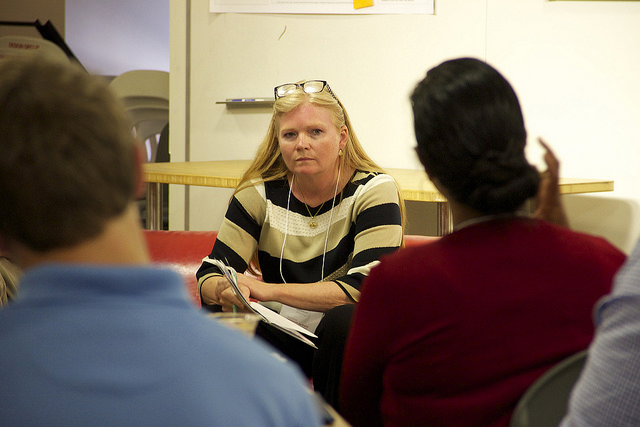
Susan Brennan; Epicenter Research Summit 2014
Humera, Leticia and I met with three of the Fellows National Advisory Board Members — President Rick Miller of Olin College, Susan Brennan of Bloom Energy and Steve Blank of Lean Launchpad and Stanford. Our initial meeting included three Fellows: Bre Przestrzelski (Clemson), Ben Riddle (Furman) and Jaime Arribas (Morgan State). Way to represent! They discussed the projects they are implementing on their campus and what being a Fellow means to them. We met with Susan Brennan in California, just after the Epicenter Research Summit to discuss future strategies for the Fellows program.
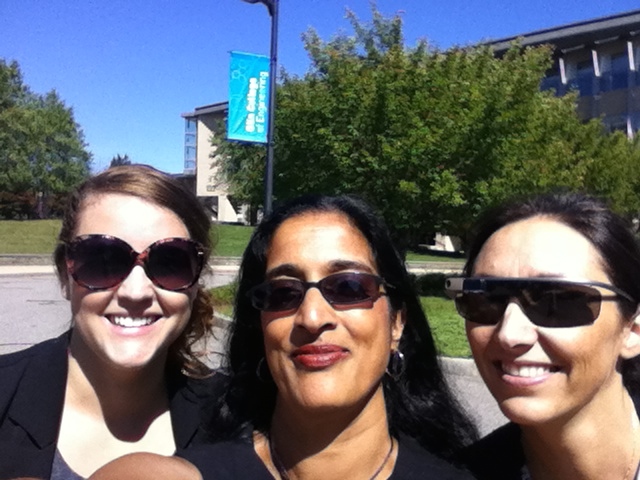
(left to right) Katie Dzugan, Humera Fasihuddin & Leticia Britos Cavagnaro; Olin College 2014
Later in August, we had a wonderful visit from Leticia — she came to Massachusetts this time! During her stay we visited President Rick Miller at Olin College, had a wonderful tour from an undergraduate engineering student and also had lunch to meet a few key faculty members.
In other news: please keep up with the google group, where we frequently post travel opportunities for Fellows to travel around the nation with us and represent the national movement. We also hope you are available to join us for one of the two Regional Meetups this fall — Southeast: Greenville, SC (October 3&4) and Northeast: UMD College Park (early November).


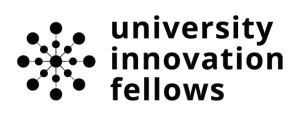
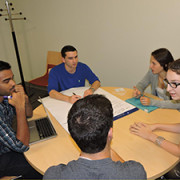
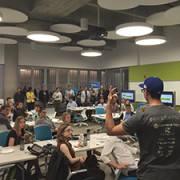 collaborated to host #OneDayKC in April 2015. This event gave six teams of undergraduate and graduate students 12 hours to create and pitch a lean startup company that leverages Kansas City’s infrastructure and the Internet of Things to solve community challenges.
collaborated to host #OneDayKC in April 2015. This event gave six teams of undergraduate and graduate students 12 hours to create and pitch a lean startup company that leverages Kansas City’s infrastructure and the Internet of Things to solve community challenges.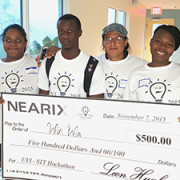
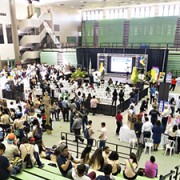 K-12 engagement
K-12 engagement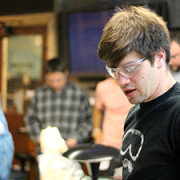 Co-working spaces
Co-working spaces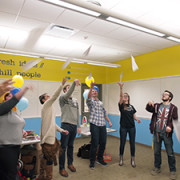
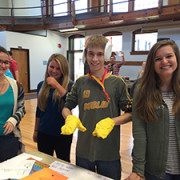
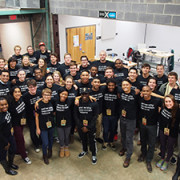 At James Madison University, the JMU X-Labs offer free, non-credit workshops to help faculty, students and community members learn new skills. Faculty and students also use JMU X-Labs as maker spaces and facilities to teach courses, with a future goal of offering 24-hour access to the campus community. In November, Fellows and faculty also hosted a University Innovation Fellows Regional Meetup in the X-Labs space, where attendees participated in design challenges and explored projects Fellows are implementing across the country.
At James Madison University, the JMU X-Labs offer free, non-credit workshops to help faculty, students and community members learn new skills. Faculty and students also use JMU X-Labs as maker spaces and facilities to teach courses, with a future goal of offering 24-hour access to the campus community. In November, Fellows and faculty also hosted a University Innovation Fellows Regional Meetup in the X-Labs space, where attendees participated in design challenges and explored projects Fellows are implementing across the country.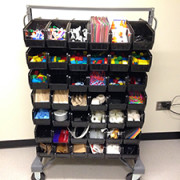 A Fellow at Utah Valley University created a mobile cart with prototyping materials that can travel to multiple classrooms to teach design thinking. This pop-up model allows faculty to help students to engage with the methodology without having to create new curriculum, with the future goal of creating a dedicated makerspace on campus for this type of engagement.
A Fellow at Utah Valley University created a mobile cart with prototyping materials that can travel to multiple classrooms to teach design thinking. This pop-up model allows faculty to help students to engage with the methodology without having to create new curriculum, with the future goal of creating a dedicated makerspace on campus for this type of engagement.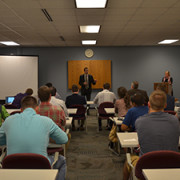 At Southern Illinois University Carbondale, Fellows enhance the entrepreneurial playing field for the region’s student entrepreneurs and innovators through Saluki Ventures. This incubator runs the Saluki Innovation Series, which offers a pitch competition, hackathon, marketing workshop and other events.
At Southern Illinois University Carbondale, Fellows enhance the entrepreneurial playing field for the region’s student entrepreneurs and innovators through Saluki Ventures. This incubator runs the Saluki Innovation Series, which offers a pitch competition, hackathon, marketing workshop and other events.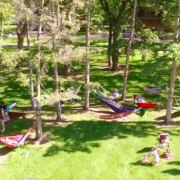 North Dakota State University’s Fellows created the Hammock Initiative to encourage students to discuss ideas in a relaxed setting. As part of the #uifresh initiative, in August, they hosted the activity “I3: Ignite Innovative Ideas,” where students relaxed on hammocks and discussed innovative and entrepreneurial activities on campus and in the community.
North Dakota State University’s Fellows created the Hammock Initiative to encourage students to discuss ideas in a relaxed setting. As part of the #uifresh initiative, in August, they hosted the activity “I3: Ignite Innovative Ideas,” where students relaxed on hammocks and discussed innovative and entrepreneurial activities on campus and in the community.